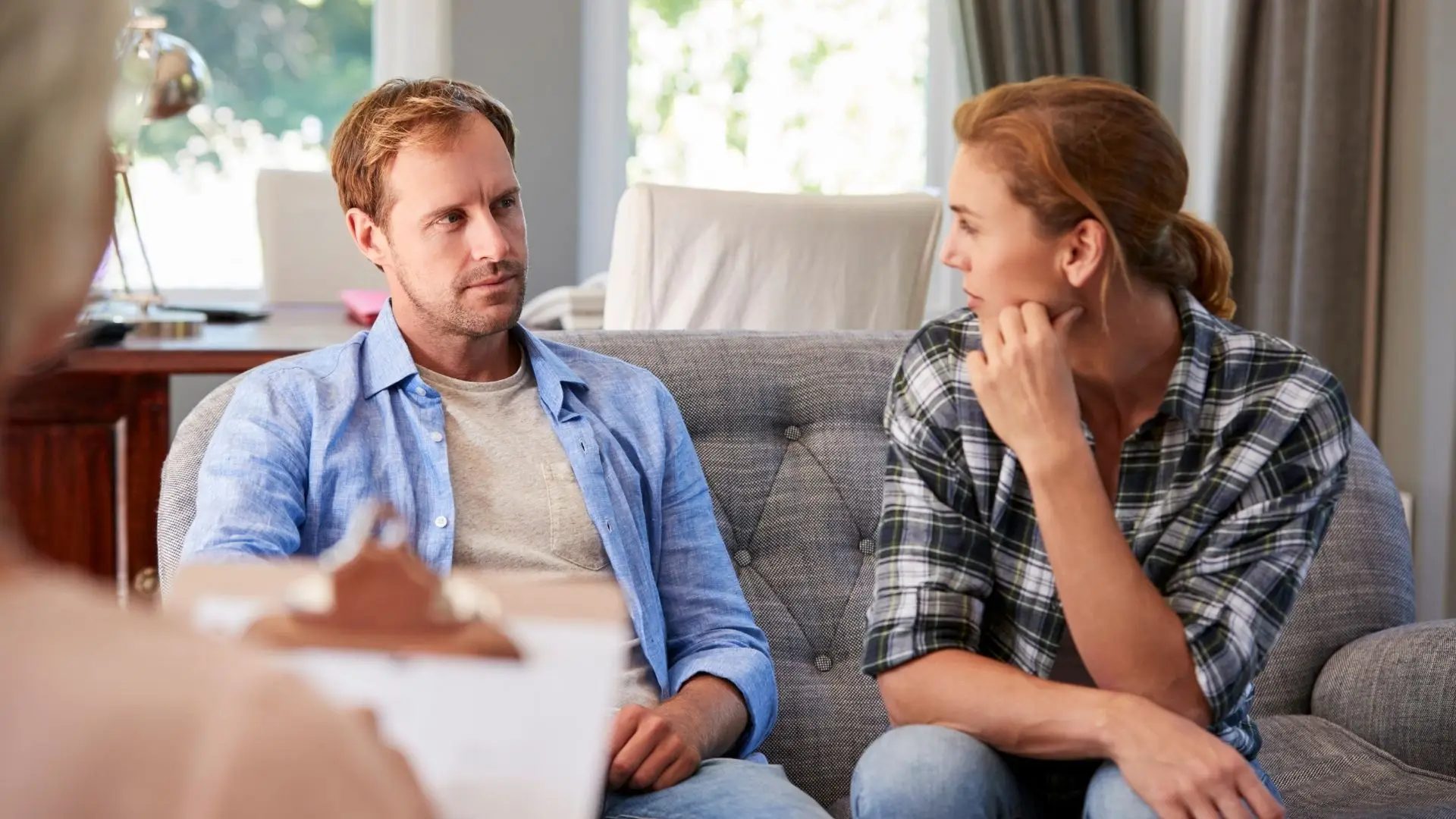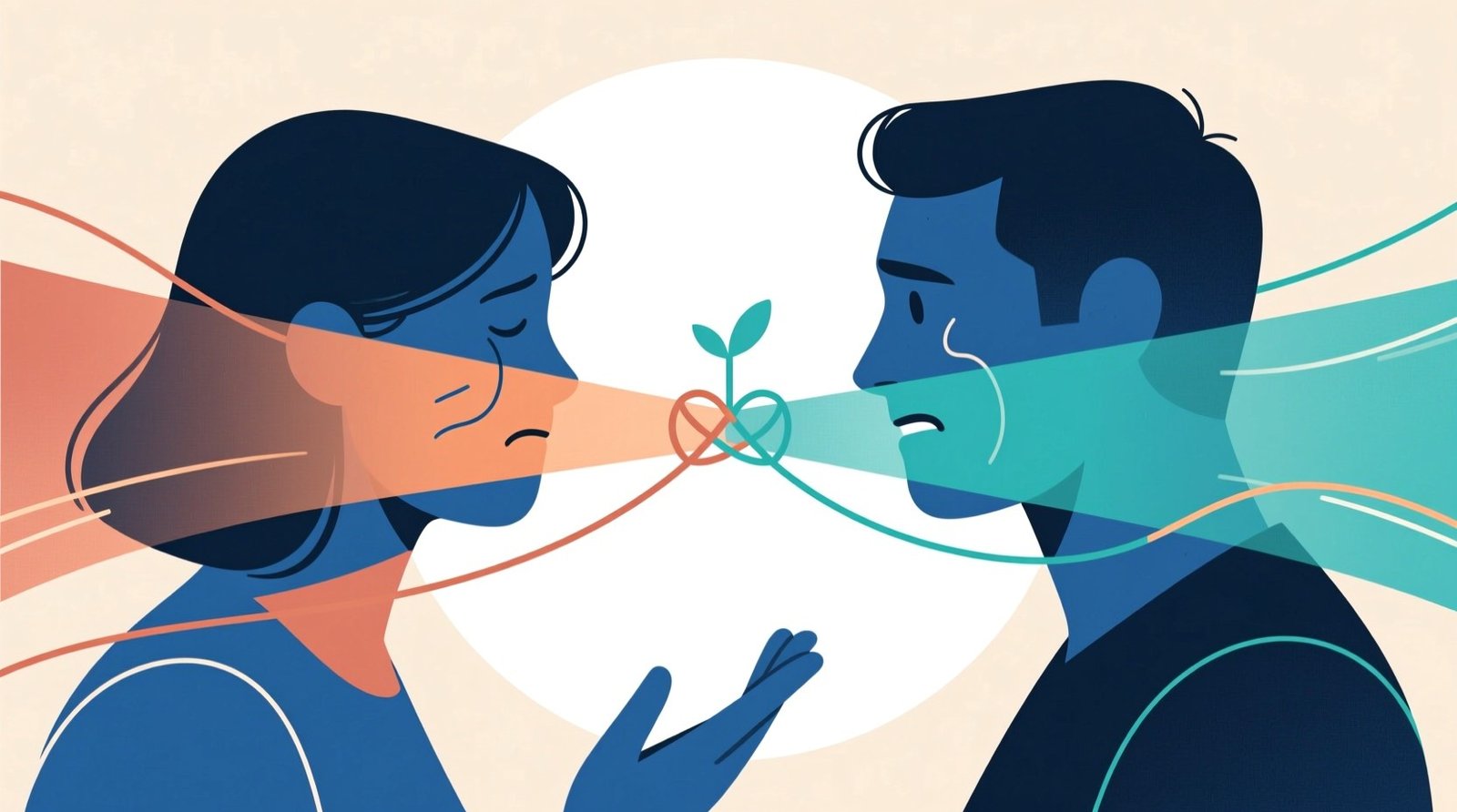Understanding Common Relationship Challenges and the Role of Couples Therapy in Resolving Them
Relationships can be one of the most fulfilling aspects of our lives, but they aren’t always smooth sailing. Whether it’s communication issues, trust problems, or unmet expectations, almost every relationship will face challenges at some point. While every couple is different, many common problems can be effectively addressed through couples therapy.
In this article, we’ll explore 10 of the most common relationship problems, how they can affect couples, and how couples therapy can offer effective solutions. Let’s dive into how therapy can help you restore balance and improve your relationship.
1. Communication Problems
One of the most common issues couples face is a breakdown in communication. Misunderstandings, poor listening habits, or even avoiding conversations can lead to conflict. Many couples feel unheard, and this can create a barrier that makes both partners feel disconnected.
Solution with Couples Therapy
In couples therapy, a therapist helps both partners to develop better communication skills. You’ll learn how to listen actively, express your feelings openly, and practice empathy. By establishing healthier communication patterns, couples can overcome this obstacle and rebuild their connection.
2. Lack of Trust
Trust is the foundation of any healthy relationship. When trust is broken, it can be hard to rebuild, whether due to infidelity, dishonesty, or unmet promises. Without trust, it’s impossible to feel secure or safe in a relationship.
Solution with Couples Therapy
Couples therapy provides a neutral environment where both partners can openly discuss the events or actions that have caused distrust. Therapists guide couples through the healing process, help them rebuild trust, and work on forgiving past mistakes.
3. Conflict Over Finances
Financial issues are a leading cause of stress in relationships. Disagreements over spending, budgeting, or long-term financial goals can create tension, especially if both partners have different views on money management.
Solution with Couples Therapy
During couples therapy, financial conflicts are addressed by helping partners understand each other’s financial priorities. A therapist can help the couple work on creating a balanced financial plan that respects both partners’ perspectives.

San Francisco, CA 94103
4. Intimacy Problems
Physical and emotional intimacy can dwindle over time, causing dissatisfaction in relationships. Whether it’s due to stress, health problems, or simply growing apart, a lack of intimacy can lead to feelings of loneliness and frustration.
Solution with Couples Therapy
Therapists can help couples rekindle emotional and physical intimacy by identifying underlying causes and promoting activities that bring partners closer. Therapy can also address psychological barriers to intimacy, making it easier for couples to reconnect.
5. Unresolved Conflicts
Some conflicts don’t go away; they linger and resurface, leading to long-term resentment. These unresolved issues can become roadblocks that prevent a relationship from moving forward.
Solution with Couples Therapy
Couples therapy allows both partners to express their grievances in a controlled environment. Therapists help couples resolve conflicts by identifying root causes and teaching conflict-resolution strategies that foster understanding and compromise.
6. Different Life Goals
Over time, couples may find that their life goals no longer align. Whether it’s decisions about having children, career aspirations, or retirement plans, different visions for the future can create tension.
Solution with Couples Therapy
Therapists work with couples to help them understand each other’s life goals and find common ground. Couples therapy encourages open discussions about future plans and helps partners navigate through differences by fostering mutual respect and compromise.
7. Jealousy and Insecurity
Jealousy and insecurity can wreak havoc on a relationship, especially when one partner feels overly suspicious or threatened. These emotions often stem from past experiences or unmet emotional needs.
Solution with Couples Therapy
Couples therapy addresses jealousy and insecurity by exploring underlying causes and boosting self-esteem. Therapists help both partners develop healthy coping mechanisms and encourage transparency, which can alleviate fears and build trust.
8. Parenting Disagreements
Raising children comes with its own set of challenges. Disagreements on parenting styles, discipline, or involvement in children’s lives can put strain on even the strongest relationships.
Solution with Couples Therapy
In couples therapy, partners learn to co-parent effectively by discussing their parenting beliefs and finding ways to compromise. Therapy provides strategies to navigate parental disagreements and encourages joint decision-making that benefits both the couple and the children.
9. Unequal Responsibilities
Unequal division of responsibilities, such as household chores, childcare, or even emotional labor, can lead to feelings of frustration and resentment.
Solution with Couples Therapy
Couples therapy helps partners reassess their roles and responsibilities within the relationship. Therapists assist in developing a more balanced approach, ensuring that both partners contribute equally to the relationship.
10. External Stressors
External factors such as work stress, health problems, or family issues can impact relationships. When stress from outside the relationship isn’t managed well, it can bleed into the couple’s interactions, causing unnecessary strain.
Solution with Couples Therapy
Therapists help couples recognize how external stressors affect their relationship. Couples therapy offers stress-management techniques, encourages emotional support between partners, and promotes healthy boundaries to protect the relationship from outside pressures.
Common Relationship Issues and Solutions through Couples Therapy
Issue |
Impact on Relationship |
Solution through Couples Therapy |
|---|---|---|
| Communication Problems | Leads to misunderstandings and emotional disconnection | Develop active listening and empathy skills |
| Lack of Trust | Creates insecurity and emotional distance | Rebuild trust through open discussions and guided healing |
| Financial Conflicts | Causes tension and stress | Create balanced financial goals with mutual respect |
| Intimacy Problems | Leads to dissatisfaction and emotional distance | Address underlying issues and promote physical and emotional reconnection |
| Unresolved Conflicts | Fosters resentment and long-term unhappiness | Identify root causes and work towards conflict resolution |
| Different Life Goals | Causes confusion and misalignment in future plans | Find common ground and promote mutual compromise |
| Jealousy and Insecurity | Leads to trust issues and emotional distress | Address insecurity and build trust through healthy communication |
| Parenting Disagreements | Causes stress and conflicting values in parenting | Develop a unified approach to parenting |
| Unequal Responsibilities | Creates resentment and frustration | Foster balance in household and emotional responsibilities |
| External Stressors | Adds pressure to the relationship from outside sources | Learn stress management techniques and set boundaries |
FAQs
H3: 1. How long does couples therapy take to see results?
Couples therapy can vary in length, depending on the complexity of the issues. Some couples see improvement after a few sessions, while others may need several months of therapy to resolve deeper conflicts.
2. Is couples therapy only for marriages?
No, couples therapy is for any committed partnership, whether married or not. It’s designed to help all couples, regardless of their relationship status.
3. Can couples therapy work if only one partner wants to attend?
While it’s ideal for both partners to attend therapy, one person can still benefit from individual sessions. They may gain insights that could help improve the relationship dynamics.
4. What if couples therapy doesn’t work?
While couples therapy can be highly effective, there are cases where it may not result in reconciliation. If both partners are unwilling to change or compromise, therapy may not be successful in saving the relationship.
5. How do I know if we need couples therapy?
If you’re experiencing ongoing conflicts, lack of communication, or emotional disconnect, it might be time to consider couples therapy. A professional therapist can help you identify whether therapy is the right step for your relationship.
Conclusion
Every relationship faces challenges, but with the right approach, most issues can be resolved. Couples therapy offers an effective solution for addressing common relationship problems by providing the tools necessary for communication, trust, and connection. If you’re experiencing any of these issues, consider seeking help from a professional therapist to guide you and your partner towards a stronger, healthier relationship.







[…] Every relationship has its challenges, but with patience and effort, couples can move forward together, leaving past conflicts behind. […]
[…] Couples therapy can address deep-rooted issues and help partners reconnect, rebuild trust, and communicate […]
Your prose has an organic, unfolding structure, where ideas emerge naturally and coherently. Sentences support one another, producing a rhythmic, meditative flow that encourages reflection, awareness, and a sense of presence throughout the reading experience.